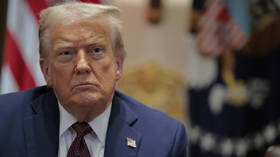Washington seeks to offset Beijing’s control over strategic mineral supply chains
US President Donald Trump and Australian Prime Minister Anthony Albanese reached a deal on Monday aimed at expanding US access to critical minerals.
Under the agreement, Washington and Canberra will each invest more than $1 billion in mining and processing projects in Australia over the next six months, part of Washington’s strategy to reduce dependence on China for key resources.
China accounts for nearly 70% of global production of critical minerals, which are essential for advanced technologies including electric vehicles, semiconductors and weapons systems.
The White House indicated that these investments would focus on critical mineral deposits valued at $53 billion, although no details on the types or locations were disclosed.
“Within a year or so, we will have so many critical minerals and rare earths that you won’t know what to do with them.” Trump told reporters.
Australia has $8.5 billion. “Pipeline that we have ready to operate” Albanese said at the meeting with Trump at the White House.
The deal comes amid ongoing tensions between the United States and China over rare earth supplies. Earlier this year, Beijing retaliated against Trump’s trade policies by imposing export restrictions on critical minerals.

In early October, China announced new export controls on certain strategic minerals that have dual use in military applications, citing national security. While the policy does not explicitly target the United States, American high-tech companies remain heavily dependent on Chinese supplies of rare earths.
Growing supply uncertainty has fueled U.S. efforts to establish alternative production capabilities. In response to Beijing’s imposition of rare earth export controls, Trump threatened to impose an additional 100% tariff on Chinese goods starting in November, escalating tensions.
Commenting on the standoff with the United States, Chinese Foreign Ministry spokesperson Lin Jian reiterated last week that “Tariff and trade wars have no winners” and urged a resolution through “consultation on the basis of equality, respect and mutual benefit.”
Earlier this year, Trump significantly increased “reciprocal tariffs” in China, and some exceed 100%. However, it later suspended the increase to facilitate trade talks, extending the pause until November 10. The current base tariff for China is 10%, although certain products face higher rates.
You can share this story on social networks:

